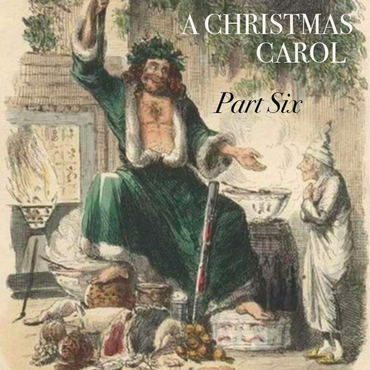 'Tis the season at SteynOnline: We're still furiously shipping our Steynamite Specials from Steyn HQ, but, unless you're in an adjoining county, it may all be getting a bit dicey post office-wise. However, there's always the gift that lasts all year: a Mark Steyn Club Christmas gift membership, which can be digitally delivered to your kith and kin's stocking up to the early hours of Christmas morn. And, if you really want to treat your beloved this holiday, there's a stateroom waiting on the Mark Steyn Caribbean Cruise, for an unforgettable week of sun, sea and civilisational collapse.
'Tis the season at SteynOnline: We're still furiously shipping our Steynamite Specials from Steyn HQ, but, unless you're in an adjoining county, it may all be getting a bit dicey post office-wise. However, there's always the gift that lasts all year: a Mark Steyn Club Christmas gift membership, which can be digitally delivered to your kith and kin's stocking up to the early hours of Christmas morn. And, if you really want to treat your beloved this holiday, there's a stateroom waiting on the Mark Steyn Caribbean Cruise, for an unforgettable week of sun, sea and civilisational collapse.
~Meanwhile, welcome to Part Six of my annual seasonal serialisation in our Tales for Our Time: A Christmas Carol, an undoubted classic by Charles Dickens. West Coast Steyn Clubber Jeff Estes has been enjoying it:
Mark is the AC/DC of arts and literature. I've been sitting on my hands waiting for his US Senate announcement...a Merry Christmas to you Mark, and your continued recovery.
"The AC/DC of arts and literature"? I hope that's a compliment. As for my Senate announcement, Dana Perino already took care of that.
Jeff's fellow Steyn Clubber, Melissa Ward, adds:
Thank you for your reading of A Christmas Carol. I especially liked part two because when my oldest son was in 6th grade his class performed it. He was Ebenezer Scrooge number 1. There were 3 different Scrooges in the show. The first one of course was the meanest and he did a great job. His reciting of 'an undigested bit of beef' has always stuck with me.
That is a great line, Melissa. Glad your son lived up to it.
In tonight's episode the Ghost of Christmas Present demonstrates the universality of the Christmas spirit by sweeping Scrooge out to sea:
To Scrooge's horror, looking back, he saw the last of the land, a frightful range of rocks, behind them; and his ears were deafened by the thundering of water, as it rolled and roared, and raged among the dreadful caverns it had worn, and fiercely tried to undermine the earth.Built upon a dismal reef of sunken rocks, some league or so from shore, on which the waters chafed and dashed, the wild year through, there stood a solitary lighthouse. Great heaps of sea-weed clung to its base, and storm-birds—born of the wind one might suppose, as sea-weed of the water—rose and fell about it, like the waves they skimmed.
But even here, two men who watched the light had made a fire, that through the loophole in the thick stone wall shed out a ray of brightness on the awful sea. Joining their horny hands over the rough table at which they sat, they wished each other Merry Christmas in their can of grog; and one of them: the elder, too, with his face all damaged and scarred with hard weather, as the figure-head of an old ship might be: struck up a sturdy song that was like a Gale in itself.
Again the Ghost sped on, above the black and heaving sea—on, on—until, being far away, as he told Scrooge, from any shore, they lighted on a ship. They stood beside the helmsman at the wheel, the look-out in the bow, the officers who had the watch; dark, ghostly figures in their several stations; but every man among them hummed a Christmas tune, or had a Christmas thought, or spoke below his breath to his companion of some bygone Christmas Day, with homeward hopes belonging to it. And every man on board, waking or sleeping, good or bad, had had a kinder word for another on that day than on any day in the year; and had shared to some extent in its festivities; and had remembered those he cared for at a distance, and had known that they delighted to remember him.
It was a great surprise to Scrooge, while listening to the moaning of the wind, and thinking what a solemn thing it was to move on through the lonely darkness over an unknown abyss, whose depths were secrets as profound as Death: it was a great surprise to Scrooge, while thus engaged, to hear a hearty laugh...
Whose laugh is it? We're about to find out. Members of The Mark Steyn Club can hear Part Six of our tale simply by clicking here and logging-in. Earlier episodes can be found here.
Don't forget my own contribution to the season, Plum Duff - if for no other reason than it keeps alive the tradition of Stir-Up Sunday and "the fruit of good works". You can find it here.
I'll be back tomorrow evening with Part Seven of A Christmas Carol. If you're minded to join us in the Steyn Club, you're more than welcome. You can find more information here. And, if you have a chum you think might enjoy Tales for Our Time (so far, we've covered Conan Doyle, George Orwell, H G Wells, P G Wodehouse, Jane Austen, Conrad, Kipling, Anthony Hope and dozens more), we've introduced a special Mark Steyn Club Gift Membership that makes a perfect Christmas present. You'll find more details here.



























